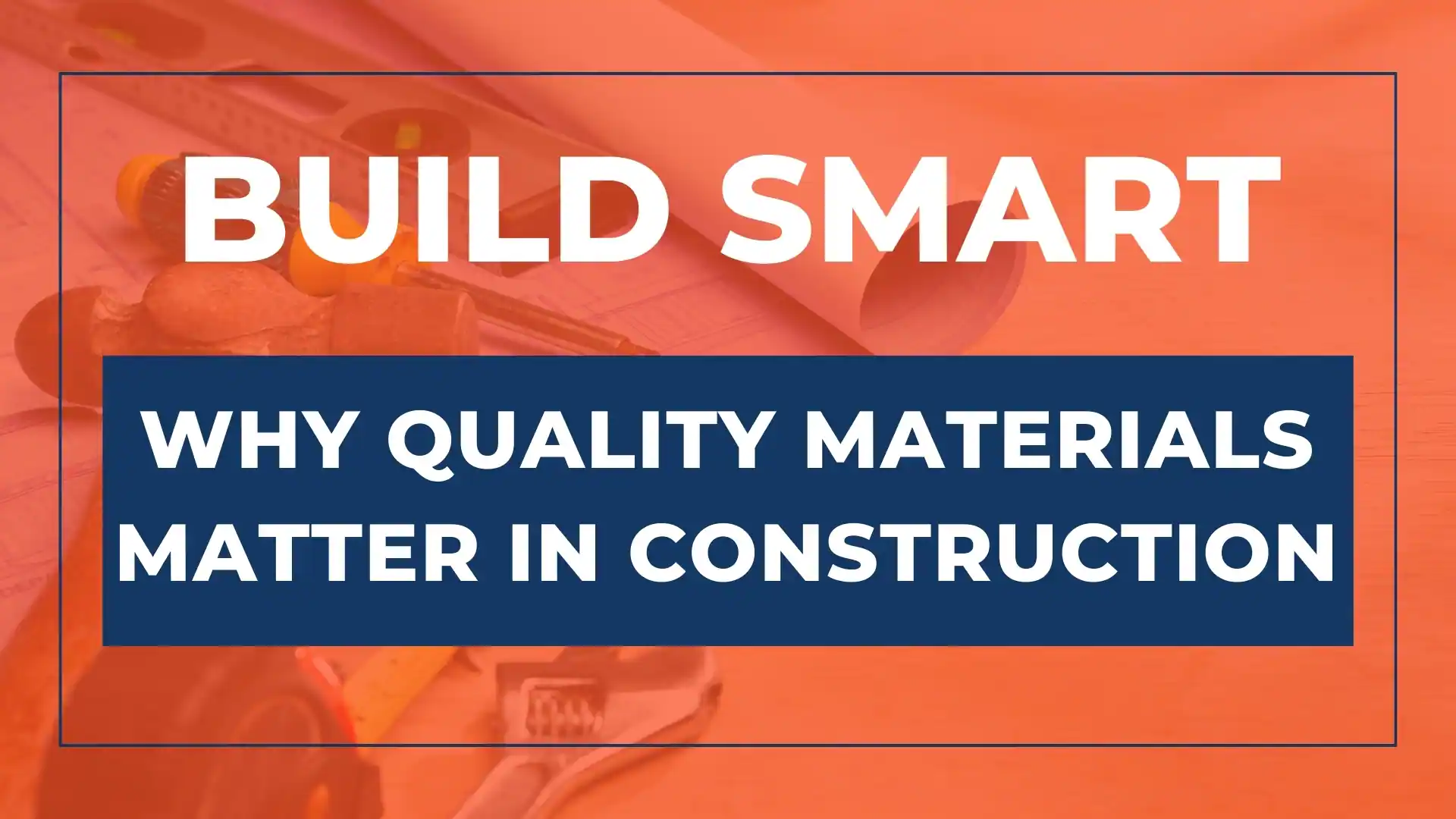Introduction
When starting a construction project, choosing quality construction materials is essential to determine the overall success and durability of the building. Construction materials are not just parts. They form the backbone of any structure, affecting everything from its durability to safety. A general thought is that cheap construction materials can lead to significant cost savings. However, this saving can result in lifelong costs far from the initial savings. The use of affordable construction materials can be costly in the long run.
Will you compromise your construction project’s lifelong durability and safety for short-term cost savings?
Long-Term Benefits of Quality Materials
- Durability: Quality materials are made to withstand daily wear and tear. Unlike cheaper copies, quality materials resist damage over time, lowering the need for regular repairs and maintenance. This ensures that your investment remains intact and usable for years.
- Safety: A structure’s integrity is due to the quality of its materials. Quality materials provide reliable structural support and stability, which improves a building’s safety. They also protect residents and help them adhere to safety restrictions and standards.
- Energy Efficiency: Buildings made with quality materials often feature better insulation, which can reduce energy consumption. This results in lower utility bills and contributes to a more sustainable environment. Quality insulation and building materials can save energy costs over the building’s lifetime.
- Value: A structure built with premium materials tends to maintain its value better over time. Quality materials improve the property’s aesthetic charm, functionality, and general value, making it a wise investment. When it comes time to sell or lease the property, you will likely see a higher return on your investment than a building constructed with cheaper materials.
Considerations for the Pakistani Environment
In Pakistan, the importance of using quality construction materials is necessary due to several environmental factors:
- Extreme Weather: The country experiences harsh temperatures, hot summers, and winters. Materials that can resist these conditions are necessary to prevent destruction and maintain the structure of buildings throughout the year.
- Seismic Activity: Pakistan is a seismically active region, which means it is prone to earthquakes. Using quality materials that can withstand seismic forces is vital to maintaining the safety and stability of structures during such events.
- Humidity: Many parts of Pakistan face severe humidity and heavy rains, which affect the longevity of construction materials. Choosing materials that can prevent moisture problems like mould and mildew is important to the long-term health of your home.
The Hidden Costs of Cheap Construction Materials
While the quick savings from cheaper construction materials might appear beneficial, it’s essential to consider the secret costs that can arise over time. These include:
- Increased Maintenance Costs: Cheap materials often require more periodic repairs and replacements, increasing maintenance costs. On the other hand, quality materials generally have longer lifespans and require less maintenance.
- Potential Safety Risks: Cheap materials may compromise a building’s structure and increase safety risks to its residents. If accidents occur due to material failure, this could lead to costly legal penalties and insurance claims.
- Decreased Property Value: Buildings made with cheap materials may cause issues affecting their value. Be careful when buying or investing in a building that needs a lot of repairs or has hidden problems. It might end up selling for less money.
- Environmental Impact: Cheap materials might not be as environmentally friendly as quality replicas. They may contribute to higher energy consumption and have a more significant effect due to their shorter lifespan and the help required for repairs and replacements.
How to Choose Quality Construction Materials
To avoid the traps of using cheap construction materials, consider the following tips when selecting materials for your project:
- Research and Reviews: Look for materials with a proven performance and durability track record. Review reviews and get help from industry professionals while choosing quality products.
- Check Certifications: Choose materials that meet industry standards and certificates. These credentials often indicate that the materials have been tested for quality and safety.
- Consult with Professionals: Work with experienced contractors or construction consultants who can help you select the best materials for your specific project and environment.
- Consider Long-Term Costs: Calculate the total cost, including initial investment, installation, maintenance, and possible repairs. Investing in quality materials can be more cost-effective in the long run.
Alarz Construction Services
At Al Arz, we know the importance of using quality materials to add longevity and value to your construction project. Our commitment to excellence means prioritising the selection of premium construction materials to deliver results that stand the test of time.
Conclusion
Choosing suitable construction materials affects the durability, safety, energy efficiency, and value of your building. While cheap materials may offer direct cost savings, they can lead to higher long-term expenses and potential risks. You invest in your construction project’s future strength and wealth by choosing quality materials. Choose wisely to provide a successful and enduring build.









